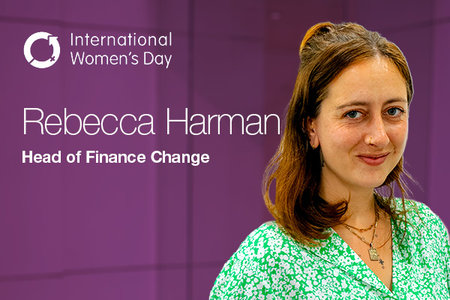New research has found almost 60% of UK brokers agreed the proportion of commercial lines clients choosing premium finance to pay for their insurance will increase over the next 12 months. Rachel Gordon from Insurance Age reports
Ongoing economic uncertainty looks set to drive up demand for premium finance, according to a recent broker survey focused on commercial lines and the cost-of-living crisis.
The second in a series of Broker Pulse surveys from Insurance Age and Close Brothers Premium Finance found commercial lines clients under pressure and looking for solutions to help them survive and thrive in a tougher business environment, where higher interest rates, increasing labour costs, staff shortages and low consumer confidence are taking their toll.
Explaining the expected rise in premium finance demand, one broker noted that for many clients “Cashflow is too tight to be paying in full”. Another highlighted that, “Clients are dealing with increased materials and running costs and increased costs for insurance”, and that “More clients are asking for instalments to make premiums more manageable”.
Evidence of the increased pressure on businesses can be seen in the Insolvency Service figures published at the end of January, which showed the number of companies folding reached a 30-year high. In 2023, some25,158 firms in England and Wales went under, a rise of 14% on 2022 and the highest annual number since 1993.
Do you think the proportion of your commercial lines clients using premium finance to pay for their insurance will change over the next 12 months?
High take-up
Take-up of premium finance for commercial lines is already considerable– the survey showed that a high proportion of these customers are already using it. Some 55% of the 127 broker respondents said between25% and 50% of their commercial lines clients were already doing so, with 11% saying it was more than 50% – and the research strongly suggests the number is set to grow further.
What proportion of your commercial lines clients use premium finance to pay for their insurance?
Choosing on cost over need?
Brokers were then asked to what extent higher interest rates and the increased cost of living had affected issues such as the cost of premiums, the choice of cover and payment options.
There were several stand-out answers based on this question, particularly when it came to a ‘large’ impact.
Some 64% of respondents agreed there had been a large impact on the rising cost of commercial lines insurance premiums, while around four in10 agreed higher interest rates and the cost of living had caused a notable increase in clients showing interest in other payment options, such as premium finance.
But one of the most startling figures was that just over 40% of brokers agreed there was a large impact on commercial lines clients’ likelihood to select insurance based on price rather than needs. The obvious inference here is that some businesses are taking out lower-cost cover that may well be inadequate.
“The prospect of underinsurance is a big issue,” says Close Brothers Premium Finance managing director, Shaun Hooper. “Brokers will want to avoid clients making false economies in the short term – and instead help them get the right policy.” As Hooper points out, premium finance can ensure a business has the right cover in place, meaning their exposures are properly covered and eligible claims will be paid in full.
Thinking back over the last year, to what extent have higher interest rates and the increased cost of living impacted the following?
Raising awareness
Previous Close Brothers research with Insurance Age highlighted that the premium finance facility goes beyond just making cover affordable – but that awareness was lacking among both customers and many brokers of these wider benefits.
The first Broker Pulse survey on premium finance, produced at the start of the year, showed there were a number of benefits that go beyond simply spreading the cost of insurance, which could be particularly appealing in a harder economic environment.
It included that premium finance monthly payments can be off-balance sheet. This could be a useful strategy to improve firms’ financial position, including if M&A activity is planned, for example.
It can also allow a business to obtain a deduction against their corporation tax charge for premium finance interest charges. These measures can improve the cashflow position and therefore access to funding.
When talking to clients who may be considering other payment options or credit facilities, it makes sense for brokers to take the time to explain these benefits, in addition to the ease premium finance provides in spreading payments.
“Clients are thinking harder about how they pay for things and structure their cashflow,” says Hooper. “With premium finance, the client knows there is a fixed price until the end of the term unlike, say, an interest-free credit card, which will only last for a certain amount of time. If their payment is not made by the end of that period, then it’s likely the interest will shoot up.”
A conversation that counts
The survey revealed that many brokers have a relatively stable core of commercial lines business, but their clients’ circumstances may well have changed in the current environment.
So, for years a client could have paid upfront for their insurance, but it could now be that spreading the cost makes more sense – or may even be essential. A proactive approach to assessing their needs can provide the opportunity to discuss new options to help their business, ensure they maintain the right cover and stay loyal.
Having a relationship with a premium finance provider could also be crucial, as one broker respondent said: “Premiums are increasing, markets are changing, and the more competitive insurers don't offer their own instalment scheme.”
The role of premium finance
Finally, brokers were asked whether they agreed – or disagreed – with a number of statements about premium finance, drawing high approval ratings across the board.
Around 9 in 10 respondents agreed that premium finance represented “…an important option for commercial lines clients to improve their cash flow” and a similar number agreed it allowed them to “…manage monthly payments for the most appropriate level of insurance”.
Brokers also saw premium finance as offering clear advantages for their own businesses, as well as for clients, with around two-thirds of brokers surveyed agreeing it “…aids commercial lines client growth and retention”.
The findings prove premium finance is a core part of the insurance ecosystem, both for commercial lines clients and for the brokers advising them. As this survey indicates, it is becoming an increasingly powerful force for how cover is purchased and as a business strategy tool.
Indeed, more than half of respondents (55%) were prepared to agree that “Premium finance is crucial to the future of my business”.






